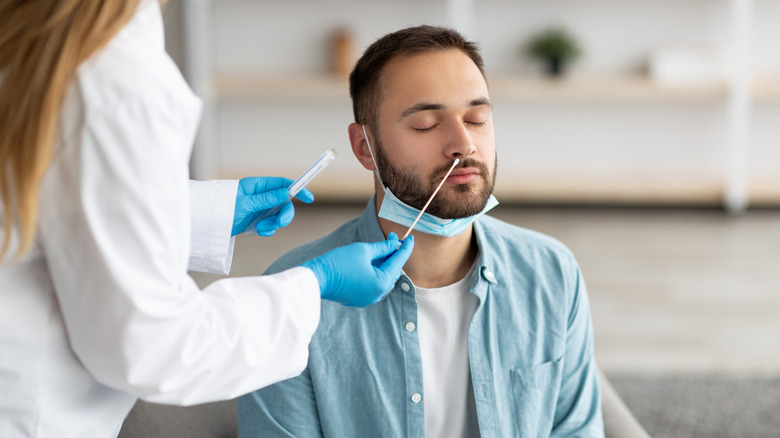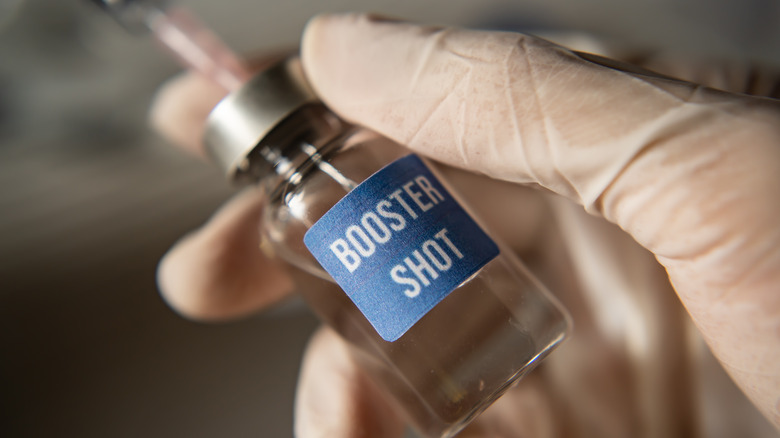Research Reveals COVID Antibodies Remain In Your System Longer Than You Might Think
When the COVID-19 pandemic first began in 2020, there wasn't much information known about the virus. How severe were the symptoms? Where can you catch COVID? Can you catch it again after getting better? Did you need a vaccine if you had antibodies? How long did the antibodies stay in your system? Over 2 years later, scientists now know much more about the virus.
After someone has COVID-19, the immune cells and proteins that are in the body are usually able to recognize the virus and kill it if the person gets sick again, according to the National Institutes of Health. In general, immunity protection consists of antibodies, helper T cells which can recognize pathogens, killer T cells which destroy those pathogens, and B cells which make new antibodies as needed, explains Healthline. Research has shown that most people who have recovered from COVID-19 have all four of those protections. However, new research has shed some light on exactly how long those antibodies remain in your system.
COVID-19 antibodies can last 500 days or almost 1.5 years
Previously, scientists only had estimates as to how long antibodies against COVID-19 would last in the body. Now, new research from the University of Texas Health Science Center at Houston has provided an answer.
The study looked at more than 57,000 volunteers aged 20 years or older, collecting blood samples between October 2020 and September 2021. Despite the health of the volunteers being diverse, their levels of antibodies all decreased over a span of roughly 1.5 years, with the extent of decline varying by factors such as age and disease severity.
"We now have a good estimate of how long antibodies last after a COVID-19 infection," said study author Michael Swartz, per U.S. News & World Report. "Our research shows that the level of antibodies in those previously infected increases for the first 100 days post-infection and then gradually declines over the next 500 days and beyond."
However, if you've been holding out on getting the vaccine, the study's authors still recommend not waiting even if you've been infected before. According to Swartz, vaccination provides even greater protection against disease and hospitalization, especially when it comes to variants.


